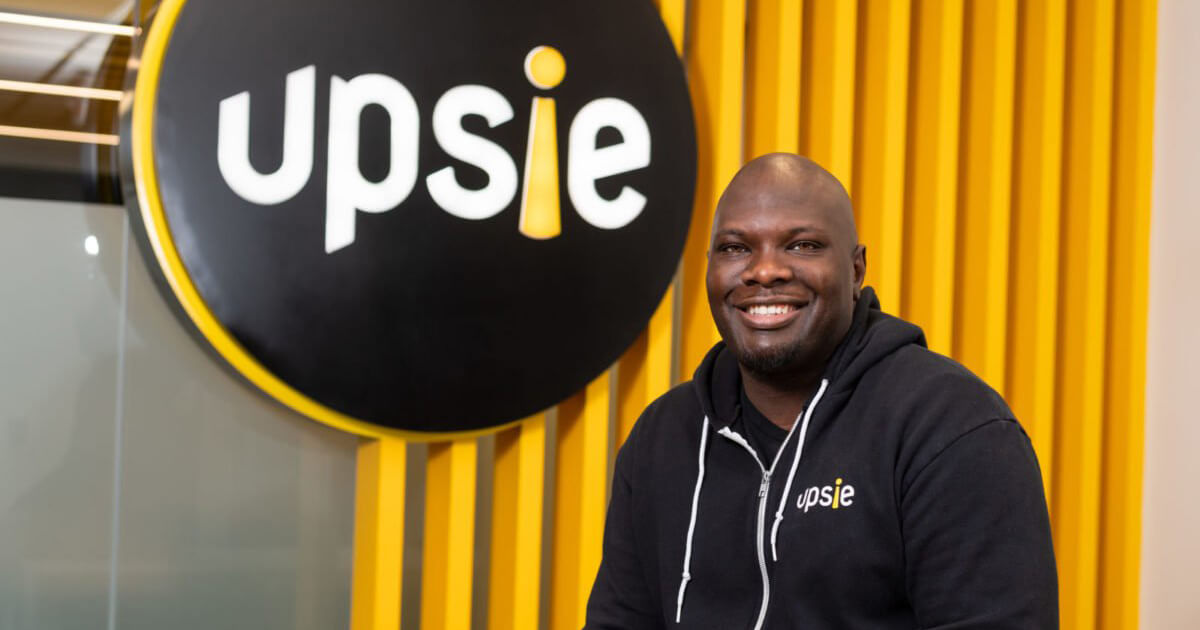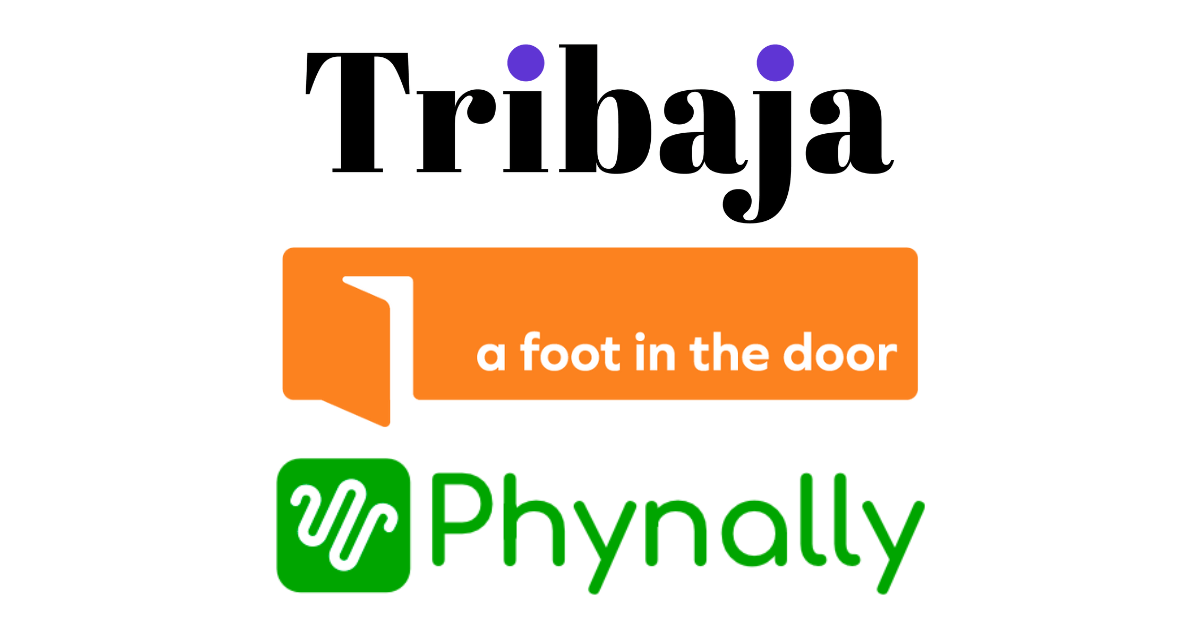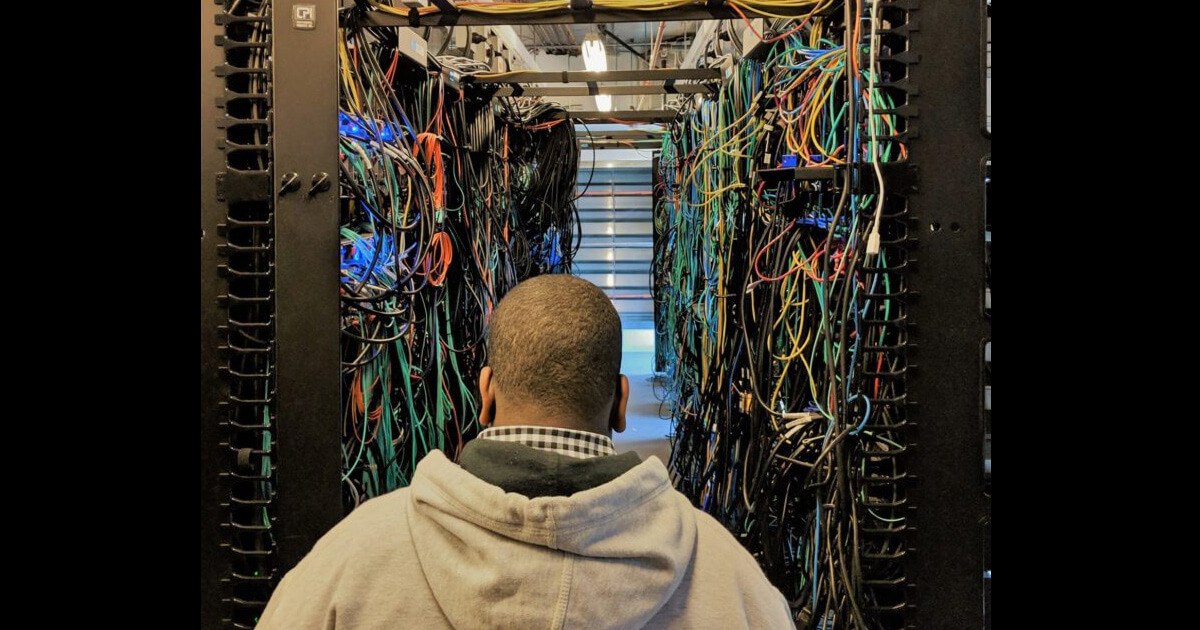Nearly one-third of the jobs that will exist in 10 years have yet to be invented. As companies scour the world in search of the best talent in artificial intelligence, cloud computing, cybersecurity, and other high tech-enabled skills, the gaps within America’s workforce are ever increasing. Pew Research Center found that even as the job market saw a rebound in May, educated Black workers lost 200,000 jobs—and a disproportionate amount were in tech fields.
And while many options are being formulated to help train and upskill the talent that will shape the future of work, missing from the discussion is the unique barriers that exist for Black workers and entrepreneurs at risk for being kept out of the opportunities ahead.
Whether it’s tackling employer-mandated credit checks, helping formerly incarcerated individuals become entrepreneurs, or skilling the next generation of Black tech workers for the new economy, attention on how to course-correct challenges remains critical to how people of color will participate in the future of work.
Luther Jackson is program manager of NOVA—a workforce development board that typically serves 5,000 jobseekers a year, nearly 80 percent of which are educated tech professionals in the Silicon valley-area needing to be reskilled. He also sits on the board of Oakland nonprofit Hack the Hood, which provides resources to help underserved youth succeed in tech careers.
As someone who sits behind initiatives that think deeply about preparing Black and brown people of all ages for the future of work, he asks what would happen if America recruited tech talent in communities of color in the same manner in which it recruited its athletes?
“If there is eighth grade basketball talent anywhere in Detroit, the world’s going to know about it. There’s going to be AAU systems, college scouts coming into town, right? There’s a system in place to identify and develop basketball talent,” said Jackson.
“What about a young woman at Spain Middle School in Detroit who has AI talent? Is there anyone out there who is saying, Oh my God, she’s incredible! We have to develop her!”
Jackson says unlocking pathways for development in order to make tech more meritocratic should be a national priority. But for many talented people of color whose zip codes don’t fit the profile of a typical tech or STEM talent, such opportunities are few if existing at all.
The barriers to employment and entrepreneurship for Black and brown people in tech range from subtle to overt, systemic to shifting. Intentional efforts to address these obstacles can meet the need to position talent to rise within the high-demand fields in the newly forming job market.
Positioned Not to Score
Sometimes it’s not the lack of skills that can keep one out of a job. It could be your credit score.
Since the 1990s, companies have been allowed by the federal government to check applicants’ credit history during the hiring process. At face value, it seems race neutral. But Amy Traub, associate director of policy and research at Demos, says credit scores mirror racial and economic divides. For example, 65 percent of white households say their credit scores are good or excellent, while more than half of Black households fall into the range of poor or fair credit.
In her 2014 report “Discredited: How Employment Checks Keep Qualified Workers Out of a Job,” Traub found that 1 in 10 low-to-middle income survey responders have been told they would not be hired because of information in their credit report. And among applicants with blemished credit histories, 1 in 7 had been informed they were not being hired because of their credit.
This raises the question, if credit was created to evaluate a person’s likelihood to repay a loan, how has it been contorted into a tool that discriminately impedes employment?
“They’ve been marketed sort of as a way to see how responsible someone is, as if their payment history is supposed to tell you their character. Maybe the idea is if they didn’t pay their bills on time, they’re not going to show up at work on time,” Traub explains. “There’s no social science evidence that credit checks can actually tell you who’s going to be a good worker and who’s going to steal from you. And as a result, there’s not an established or proven way to evaluate any of the information that’s in a credit report.”
While employers cannot see the three-digit credit score, they have access to a wide range of personal information, like loans, liens, bankruptcies, court judgements, and your payment history. Room for bias seeps in because the hiring manager has the freedom to interpret the data however they wish. And while a candidate can opt out, the employer can legally end the hiring process.
At the end of the day, “a credit check doesn’t show what we want it to show,” Traub emphasized. “Instead it really shows the kinds of economic challenges and disadvantages someone has faced. And that’s not something you should look at when you’re evaluating someone for employment.”
“This Is Hand-to-Hand Combat”
Ensuring more equitable credit reporting policies can not only help reduce barriers to employment for minority jobseekers, but also potentially reduce one of the biggest barriers to entrepreneurship: lack of access to capital.
A 2019 Ewing Marion Kauffman Foundation study found that regardless of credit scores or net worth, Black entrepreneurs are three times less likely to be approved for loans. And 1 in 5 Black entrepreneurs report that a lack of access to capital negatively impacted profitability, and thus an ability to grow revenue to expand the business and create jobs.
Minneapolis-based tech founder Clarence Bethea has overcome it all, including the uphill battle of raising money for his company. Growing up in Decatur, Georgia, Bethea didn’t have the background of your traditional tech founder. He got into some trouble as a teen that resulted in a misdemeanor.
“If you have this thing on your background, people just look at you a different way,” he said. “I think people do their time or they do their probation—why are they being held back from opportunity? I’m a big believer that people deserve second chances. Sometimes third chances.”
With his second chance, Bethea eventually got into tech, and in 2015 started his company Upsie, which sells affordable extended warranties. He was able to gather some money from angel investors, but says it took two years to get his first institutional check from Bread and Butter Ventures based out of Minneapolis.
Being accepted into the Target+Techstars Retail Accelerator in 2017 provided a level of credibility that started to open more doors. He went on to raise over $5 million in VC funding in 2019. (Crunchbase reports $8.2 million in total funding secured.) But getting in those rooms was not easy, he admits.
“I’ve had many meetings where I got an introduction, talked to people on the phone, and they show up to meet me and they’re almost surprised that I’m Black. And then you have to fight that barrier. A lot of Black founders won’t even get the meeting,” he said.
Forging ahead, Bethea worked his way up the chain by expanding his circles and working his networks to get in the game–a jungle gym of sorts that can be a hindrance for many other entrepreneurs. Today, Upsie employs nearly a dozen people and recently moved into a new office in St. Paul, Minnesota.
Upsie’s hard-won success is why Bethea is passionate about being a resource for other Black founders trying to navigate the scene. He believes one way to remove barriers is for people to work together and share what they’ve learned. “This is hand-to-hand combat, which means we need each other to have some success,” he said.
Preparing the Least Hireable for the World of Work
Henry Rock runs City Startup Labs, a hybrid accelerator/incubator based in Charlotte that since its inception in 2014 has hosted cohorts of promising Black founders that have traditionally been overlooked in the local startup community. Since its founding, the program has provided business education and mentorship to over 100 Black millennials, as well as individuals who were formerly incarcerated.
“I want us to not only reimagine them as being capable and ready and available, but I also want them to reimagine themselves,” Rock said. “It’s this entrepreneurial class that we’re creating.”
Prison Policy Initiative, a nonpartisan nonprofit, found that the unemployment rate for formerly incarcerated people is nearly five times higher than the general population. Within that group, Black women experience the most severe levels of unemployment (43.6%), and Black men are right behind (35.2%). Data from the IRS found that for returning citizens who do find employment, their income puts them well below the poverty line.
Instead of putting returning citizens on a dead-end path by seeking employment with companies that are not likely to give them a chance at anything other than menial work, CSL’s Re-Entry Entrepreneurship Program (REEP) sought to explore whether the support to participate in entrepreneurship married with on-trend skills training could be used as a tool for restorative justice. Rock calls REEP a pilot for 21st-Century workforce development—empowering creative people to apply their own sense of ingenuity to generate employment for themselves and their communities, by extension.
“We could be a lot further along as a country. Unleash the innovation that’s been pent up inside of our community, and you’ll see how great we can be!” Rock passionately explains.
Rock is candid about his reticence in selling the concept of entrepreneurship amid the harsh realities the pandemic has had on businesses across all industries, but particularly the 40 percent of Black-owned businesses that have become endangered due to lack of financial support and declining sales.
But despite the bleakness of the current economic and business climate, Rock remains optimistic. He sees this moment as a clarion call for people with the talent to build innovative solutions. And he advocates for entrepreneurs and employers to seize the opportunity to create a new and more equitable economy for all.
“If we don’t do something new inside of this circumstance that we find ourselves in, then will we? If this doesn’t generate some new approaches to how to rethink all of this, then what would?” asked Rock.
SPONSOR SERIES
This story is made possible with the support of New Profit—a venture philanthropy firm deeply investing in workforce solutions powered by forward-thinking entrepreneurs helping people level up their tech skills and secure opportunities in the new world of work.
New Profit recently announced a $6M initiative to help fund entrepreneurs helping to rapidly reskill American workers for the future of work. Join the challenge!








